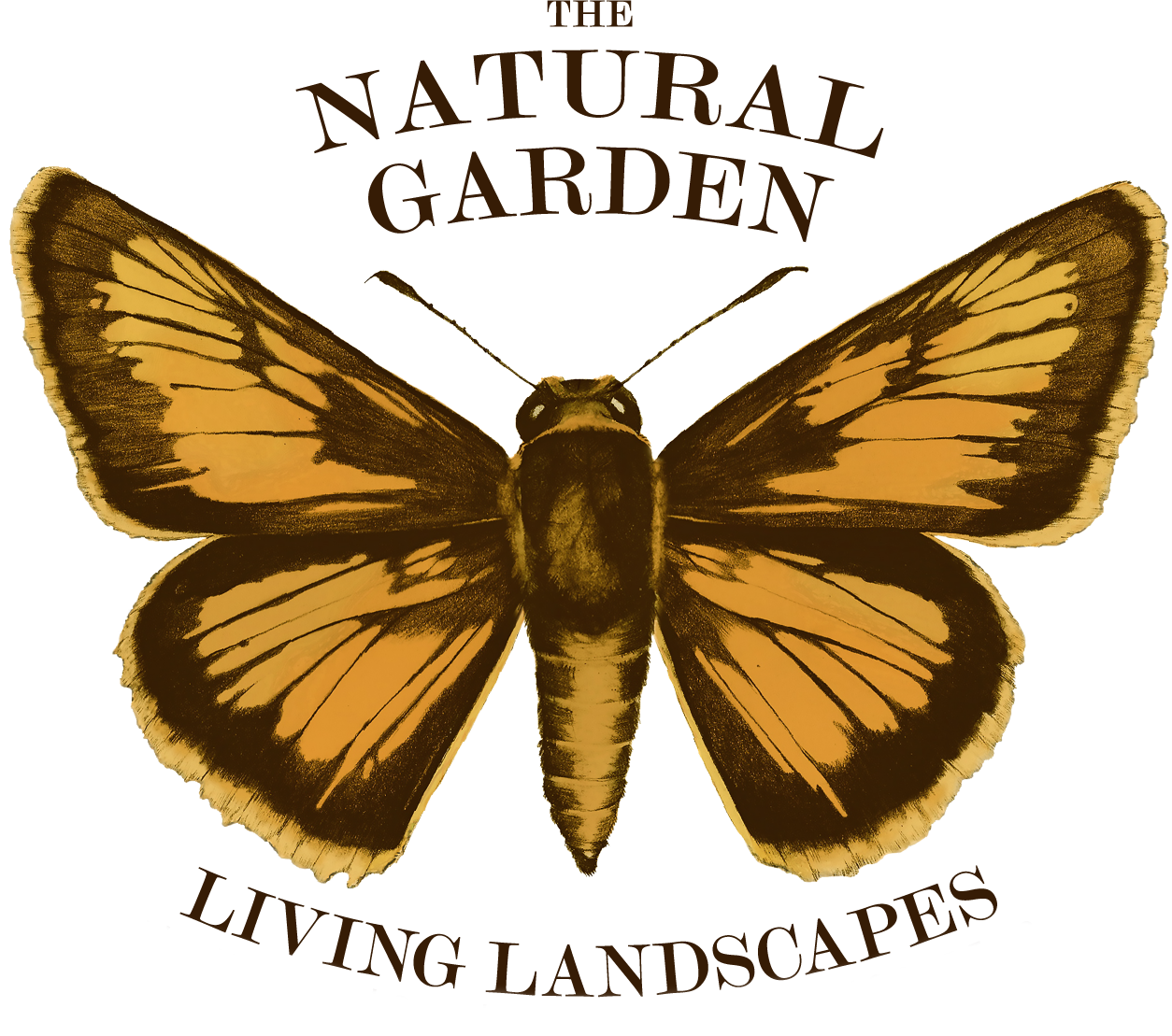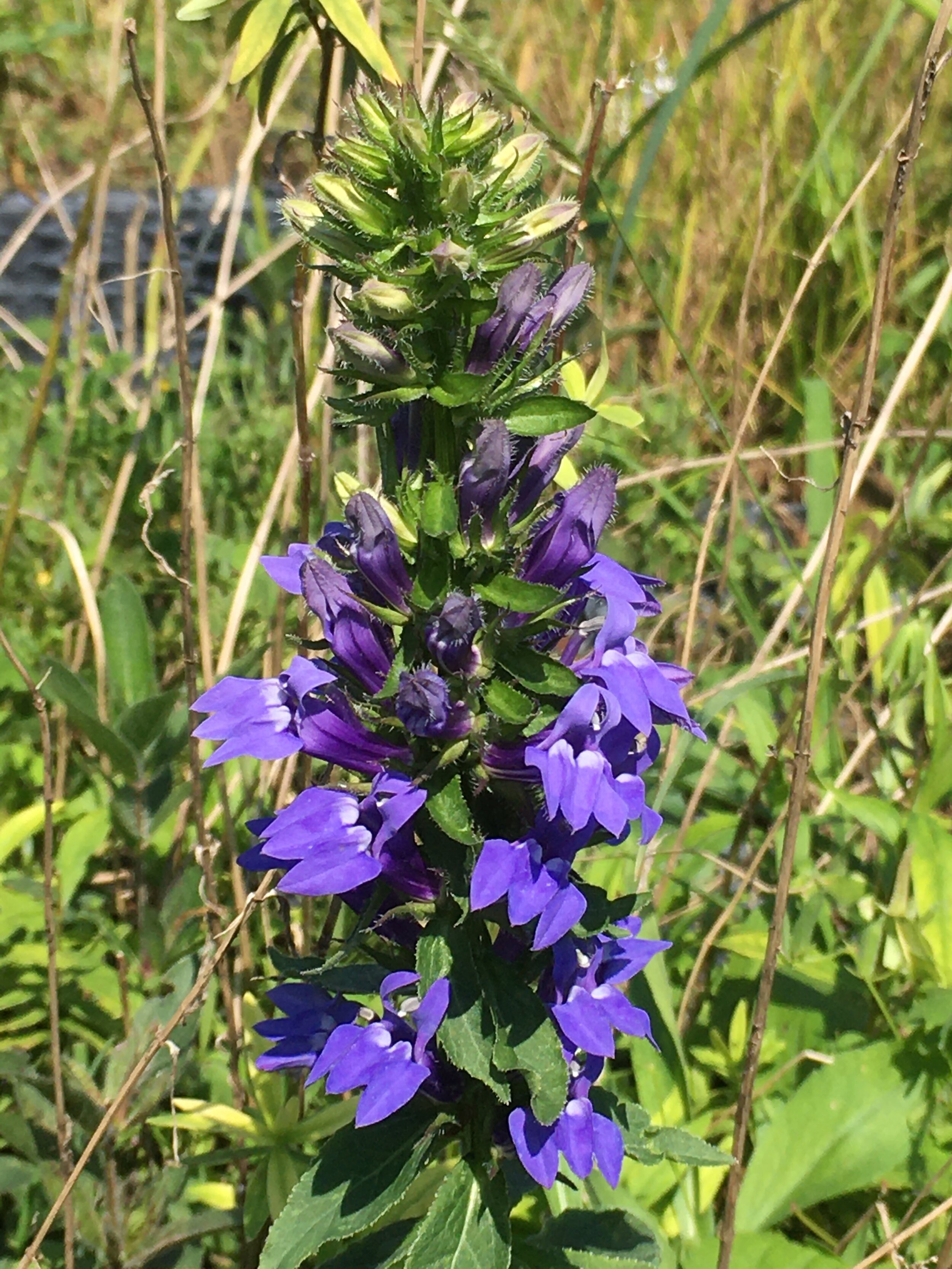Allium cernuum (Nodding Onion)
grows 1-2 ft. tall
grows in full sun to part sun
prefers dry to medium soils
blooms white, light purple and pink from June-August
natural habitat: rock outcrops, woodlands, dry forests, meadows
host plant/associated insects: leafcutter bees, small resin bees, sweat bees, bumblebees, cellophane bees, soldier beetles, tumbling flower beetles, syrphid flies
resistant to black walnut toxicity (juglone)
deer resistant
companion plants: Phlomis russeliana (Jerusalem Sage), Papaver Orientale (Oriental Poppy), Echinacea purpurea (Purple Coneflower), Eryngium yuccifolium (Rattlesnake master), Bouteloua curtipendula (Sideoats grama), Clematis virginiana (Virgin’s Bower), Solidago graminifolia (Grass-leaved Goldenrod)
benefits bumblebees, solitary bees, and beetles
all parts are edible; use like onions or chives
makes a beautiful cut flower
grows 1-2 ft. tall
grows in full sun to part sun
prefers dry to medium soils
blooms white, light purple and pink from June-August
natural habitat: rock outcrops, woodlands, dry forests, meadows
host plant/associated insects: leafcutter bees, small resin bees, sweat bees, bumblebees, cellophane bees, soldier beetles, tumbling flower beetles, syrphid flies
resistant to black walnut toxicity (juglone)
deer resistant
companion plants: Phlomis russeliana (Jerusalem Sage), Papaver Orientale (Oriental Poppy), Echinacea purpurea (Purple Coneflower), Eryngium yuccifolium (Rattlesnake master), Bouteloua curtipendula (Sideoats grama), Clematis virginiana (Virgin’s Bower), Solidago graminifolia (Grass-leaved Goldenrod)
benefits bumblebees, solitary bees, and beetles
all parts are edible; use like onions or chives
makes a beautiful cut flower
grows 1-2 ft. tall
grows in full sun to part sun
prefers dry to medium soils
blooms white, light purple and pink from June-August
natural habitat: rock outcrops, woodlands, dry forests, meadows
host plant/associated insects: leafcutter bees, small resin bees, sweat bees, bumblebees, cellophane bees, soldier beetles, tumbling flower beetles, syrphid flies
resistant to black walnut toxicity (juglone)
deer resistant
companion plants: Phlomis russeliana (Jerusalem Sage), Papaver Orientale (Oriental Poppy), Echinacea purpurea (Purple Coneflower), Eryngium yuccifolium (Rattlesnake master), Bouteloua curtipendula (Sideoats grama), Clematis virginiana (Virgin’s Bower), Solidago graminifolia (Grass-leaved Goldenrod)
benefits bumblebees, solitary bees, and beetles
all parts are edible; use like onions or chives
makes a beautiful cut flower















